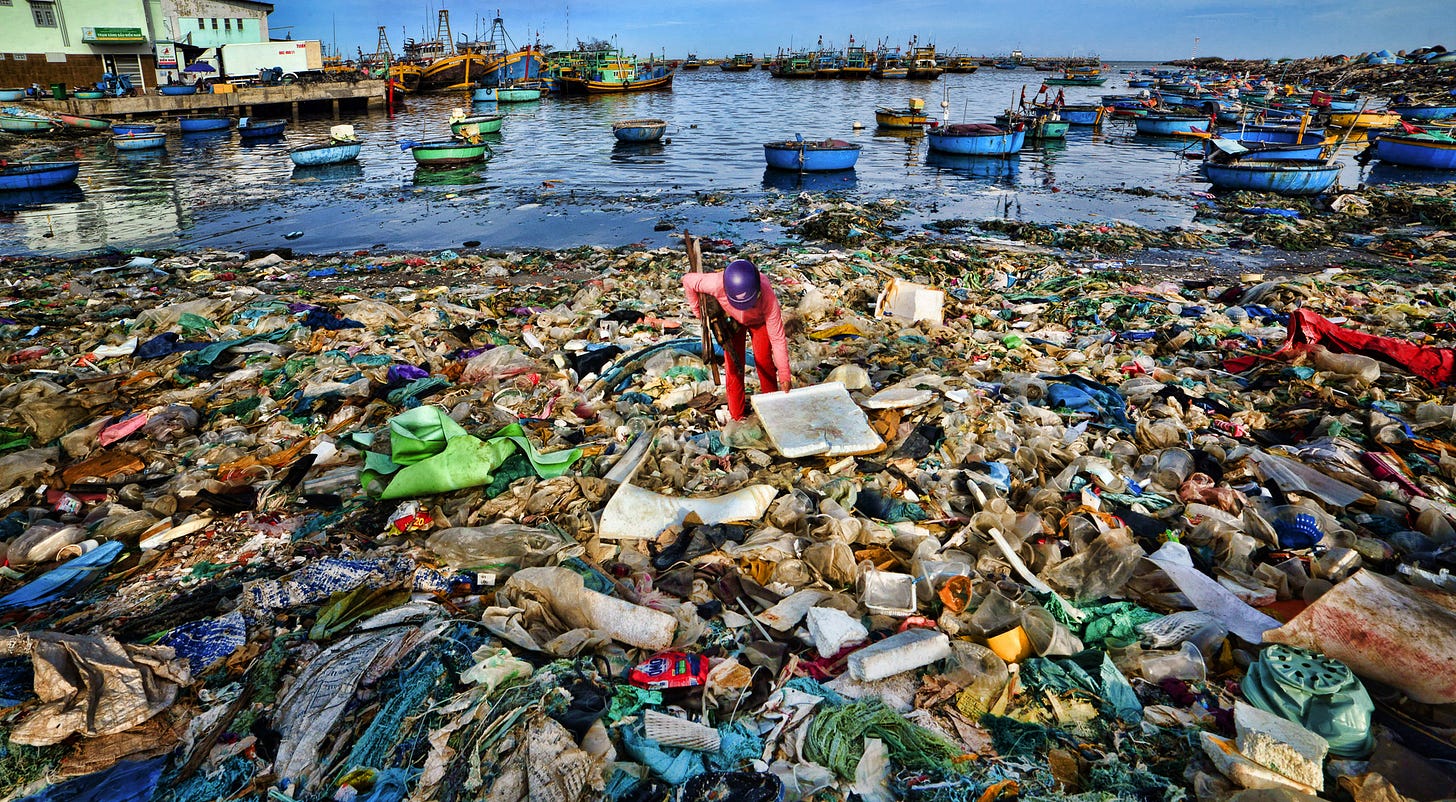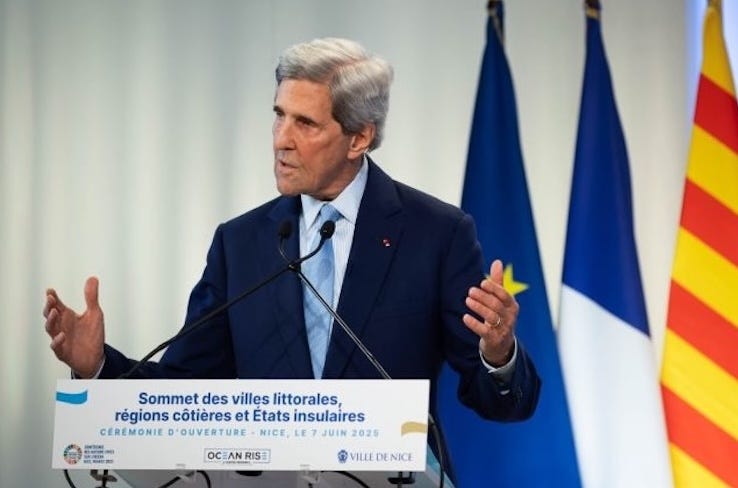Scientists Rally to Protect Oceans in Decline
Trump administration sits out a global conference to save the seas

More than 40 years ago, I met with a senior scientist from the celebrated Scripps Institution of Oceanography in San Diego to talk about ocean pollution. I was shocked when he told me he was not overly concerned about it because oceans are so vast and self-sustaining. “The solution to pollution,” he said, “is dilution.”
Fast forward to today. Scientists are painfully aware that pollution has caused dramatic changes. The most worrisome change of all is due to rising carbon emissions, which have warmed oceans globally to record levels, destroying life-sustaining coral reefs critical for marine life. Higher sea levels, meanwhile, are flooding coastlines and marshlands that provide crucial habitat for fisheries and birds. Oceans provide half of the world’s oxygen, but even that production has declined as oceans warm and turn dangerously acidic.
The list of ocean impacts is endless. Besides the ravages of climate change, urban runoff has smothered seagrass and mangroves that cleanse oceans, while plastic pollution floats from pole to pole.
The financial costs of ocean pollution are expected to range in the trillions of dollars in the coming years. Until relatively recently, however, maritime nations have paid little attention to mounting environmental assaults on sea-based economies.
Fortunately, more scientists, international agencies and governments have taken notice since my interview at Scripps four decades ago. Although they have only taken preliminary steps to address ocean degradation, ocean scientists say momentum is building to train a spotlight on the health of the world’s oceans before it’s too late.
Trump Administration a No-Show
Last week, 15,000 scientists, government policymakers, business executives and public interest advocates attended the third U.N. Ocean Conference in Nice, France, to address ocean health and discuss ways to implement more international agreements to protect the seas.
Conspicuously missing from the gathering were official U.S. representatives. The Trump administration decided to skip the meeting altogether and would not let scientists from NASA, the National Oceanic and Atmospheric Administration (NOAA), or other relevant agencies attend.
“The main thing we see is the complete lack of U.S. federal scientists,” Scripps ocean expert Lisa Levin told NPR. “They have played a major role on almost all the issues being discussed in this conference, so they are really missed. NOAA, especially, has long-term observations that are being threatened that the entire scientific community around the world depends on.”
Former Secretary of State John Kerry, who served as President Joe Biden’s special envoy for climate, opened the conference with biting criticism of the Trump administration’s anti-scientific policies. “Never has your knowledge and expertise been more relevant than today,” he said, “and never have we known—at least in the modern world—a time where the life’s work of scientists is so openly scorned or ignored by those who claim to lead.”
Wild West for Fishing
Ocean scientists and experts from 170 other countries were in attendance, and they made some progress on an international agreement to protect sea life. At least 18 new countries signed on to the High Seas Treaty, which would enable nations to set up marine protected areas in international waters that account for two thirds of the ocean. The total number of treaty signatories is now 49, just 11 short of the 60 needed for it to enter force. The United States signed the treaty in September 2023, but the U.S. Senate has yet to ratify it.
“It’s the Wild West out there, with countries just fishing anywhere without any sort of regulation, and that needs to change,” World Wildlife Fund’s Mauro Randone told the Associated Press. “The high seas belong to everyone and no one practically at the same time, and countries are finally committing to establish some rules.”

The conference attracted financing for some of these efforts, something that had been lacking in previous meetings. The European Union, for example, created a €1 billion Ocean Pact to fund research, ocean conservation, and sustainable fishing. Private foundations, meanwhile, committed more than $50 million to support the establishment of an expansive global marine protection network, a key component of the High Seas Treaty.
“The creation of marine protected areas in the high seas is essential for preserving the ocean’s health and ability to act as a climate ally,” said Melissa Wright, head of the Bloomberg Ocean Initiative at Bloomberg Philanthropies. “…With less than 2 percent of the high seas currently protected, action cannot wait.”
Not all attendees were happy about what they perceived as minimal progress at the conference. The international environmental group Oceana, for example, criticized French President Emmanuel Macron for doing little to address destructive bottom trawling practices while he was quick to take credit for proposing new fishing policies that would protect only about 4 percent of France’s coastal waters.
“This is a missed opportunity to secure resilient and abundant oceans for fishers, for coastal communities, and for future generations,” said Alexandra Cousteau, granddaughter of famed oceanographer Jaques Cousteau and an Oceana senior adviser. “Allowing bottom trawling in marine protected areas makes a mockery of the very concept of protection…. As my grandfather once said, ‘The sea, the great unifier, is man’s only hope.” Now, as never before, the old phrase has a literal meaning: We are all in the same boat.”
Rocky Kistner, Money Trail’s associate editor, previously worked as a reporter and producer at ABC News, the Center for Investigative Reporting, HuffPost, Marketplace and PBS Frontline.
Money Trail is a fiscally sponsored project of the Alternative Newsweekly Foundation, a 501(c)(3) public charity, EIN 30-0100369. Donations are tax-deductible to the extent allowed by law.




